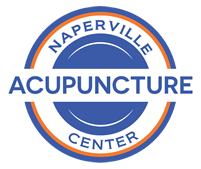Our Sleep Crisis
Sleep is a necessity. These days, it is starting to feel like the ultimate luxury. Are you spending fitful, anxious nights, staring at the clock? Even if you are able to get to bed on time, it may be hours before you are able to fully unwind from the stress of the day and finally fall asleep. And always, there are the devices; the phones, computers, and TV’s, demanding our attention.
If you are awake at night and drowsy during the day, you are far from alone. In 2016, a study by the Centers for Disease Control revealed we are experiencing a sleep crisis. In fact, up to a third of Americans now get fewer than 7 hours of sleep per night.
Hidden Dangers of Poor Sleep on Your Health
Fatigue. Irritability. Brain Fog. These are the obvious signs of a lack of sleep. Unfortunately, it doesn’t end there. The longer you experience poor sleep, the more likely you are to encounter other health issues, including:
- Weight Gain. We all know obesity rates are on the rise. Did you know lack of sleep can increase your appetite? Insufficient sleep is linked to an increase in the hunger signaling hormone, ghrelin. It also causes a decrease in the release of leptin, a hormone which reduces appetite.
- Not only does lack of sleep affect your appetite, it can increase insulin resistance. Insulin resistance is a factor in the development of type II diabetes.
- Hypertension. A lack of sleep can cause higher cortisol levels the following day, which can lead to an increase in blood pressure.
- It may be obvious, but it bears mentioning that lack of sleep affects your concentration and memory. It can also negatively impact your work performance.
- If that wasn’t enough, inadequate sleep can also impact the immune system. It can inhibit your body’s ability to fight off infection.
Sleep And Anxiety
The prevalence of anxiety is one of the main reasons I began investigating sleep. Very often, people who visit my practice complain that they experience feelings of anxiety and stress on a regular basis. Of these people, a large percentage also have trouble sleeping. It turns out this is not a coincidence.
Insomnia can double the risk of having an anxiety disorder. Not only that, but upwards of 70% of people who suffer from clinical anxiety have trouble either falling or staying asleep. New research on sleep points to a possible reason for this correlation. The brain needs to recharge at night to be able to process emotions properly. You need to enter a period of deep, restorative sleep for this to happen. Without enough deep sleep, you will be more easily irritated and prone to anxiety the next day, and the cycle will continue.
Sleep and Pain
Is pain keeping you awake? Pain is a key factor in preventing a good night’s sleep. Americans lose an average of 14 minutes per night due to acute pain, and over 40 minutes per night due to chronic pain.
To make matters worse, if you’re suffering chronic pain, a lack of sleep can increase the pain. A study of over 2,500 people suffering from fibromyalgia (a chronic pain condition) revealed insomnia as one of the most common aggravating factors.1 Another study showed that in chronic low back pain sufferers, 53% had insomnia, while in the pain free group the number was only 3%. 2
Sleep Medications
The most commonly prescribed medications are Ambien, Sonata and Lunesta. These are powerful drugs, known as sedative-hypnotics. Matt Walker, author of the book Why We Sleep, suggests that sleeping pills don’t work as well as we wish they did. Sleep medications may not deliver the same restorative benefits as natural sleep. The research suggests that the drugs don’t work better than placebos. Additionally, they may come with their own set of side-effects, including dizziness, headaches, and sleepwalking. (Note: If you are taking these medications currently, do not stop without discussing with you doctor first.)
Natural Sleep Restoration
Are you tired of looking at the clock with dread at night? Of tossing and turning? Of listening to the strange, irritating sounds we seem to hear only at night? Imagine settling in for a good night’s sleep, drifting off, knowing you will wake up refreshed tomorrow. What would it be like to wake up energized and ready to go?
Restoring sleep means re-educating your body and brain to experience a natural sleep cycle. A holistic approach means more than just taking a pill, or even just getting acupuncture. It means re-orienting yourself towards the experience of sleep, and learning how to maximize this vital part of your life. Over the years, I have learned the importance of sleep not only in treating stress, anxiety, and pain, but also in increasing performance at work and athletically. I will create a plan combining acupuncture, herbs, meditation and education to help you. If you are ready, give us a call at (630) 369-3237 today!
- Bennett RM, Jones J, Turk DC, Russell IJ, Matallana L. An internet survey of 2,596 people with fibromyalgia. BMC Musculoskelet Disord. 2007;8:27.
- Tang NK, Wright KJ, Salkovskis PM. Prevalence and correlates of clinical insomnia co-occurring with chronic back pain. J Sleep Res. 2007;16(1):85–95.
